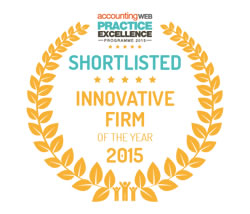R & D Update January 2022 Blog
by
R & D Update January 2022 – HMRC Consultation
Overseas R & D Activity by Agency Workers & Subcontractors Notification of Project Work to HMRC in Advance
Both the SME & Large company [RDEC] RD schemes provide valuable relief for UK based companies. Key changes for companies with overseas cost centres lie ahead & for all companies HMRC wish to sharpen the focus of the relief toward pre defined RD project work. MARIA KITT , Tax Director, Tax Insight UK, takes a look at what lies ahead.
Before the government publishes the draft legislation in summer 2022, it is inviting views from stakeholders on the detailed implementation of these measures. The legislation will be included in the Finance Bill 2022-23 and final legislation, taking account of any comments received, will come into effect in April 2023.
Recap of the proposed changes and areas for consultation
HMRC’s R&D Tax Reliefs Report proposes changes to expenditure on third-party workers, [agency workers] qualifying expenditure on cloud computing and datasets, and some administrative and technical amendments.
1. Restriction on claiming for overseas R&D activities
- Claims for subcontractors or externally provided workers undertaking qualifying R&D abroad will not be possible, refocusing the reliefs towards UK skills and employment.
- The overseas R&D activities themselves will not count towards the UK’s ambitious target of R&D making up 2.4% of GDP.
HMRC wants to understand where the proposed changes would unfairly stop businesses claiming for R&D that can only be undertaken overseas. A recent example is developing the AstraZeneca vaccine, where some clinical trials needed to be done in Brazil.
2. Preventing abuse of the R&D scheme
- All claims will be made digitally through HMRC’s COTAX portal.
- Each claim will be endorsed by a senior person at the company.
- Details of the agent involved will be required.
- Companies will have to notify HMRC in advance that they wish to make a claim.
3. Cloud computing and data costs to qualify for relief for both SME and RDEC schemes
- Licence payments for datasets and cloud computing costs that can be attributed to computation, data processing and software will be eligible for tax relief.
- Attributing datasets solely to R&D will be complex.
- Changes will be made “in the spirit of the existing legislation”, where relief is not available for general overheads associated with cloud.
HMRC wants to understand how this distinction could operate in practice, such as costs that should be excluded.
4. Addressing unforeseen anomalies in the schemes – miscellaneous considerations.
- HMRC will allow for companies to make an RDEC claim, where an enquiry reveals that legitimate R&D expenditure was mistakenly claimed under the SME scheme.
- All companies in a group will enjoy a “period of grace” when they become a “large company” for R&D purposes.
- A company that is not a “going concern” will be able to make a claim.
- Expenditure within two years of the end of the accounting period will qualify
The measures align the UK scheme with most of its European and Far East territories who have prescriptive ‘location’ requirements for their version of RD relief.
Already we are seeing resistance to the pre notification of RD project work given that most innovative companies run many ‘Blue-Sky’ projects before committing funding to sustained project work or reassessing the project once funding rounds are complete. A ‘Clearance’ based notification is possible but the reality is that core external investors already assume relief applies when assessing the target company balance sheet.
As ever, interesting times lie ahead.

